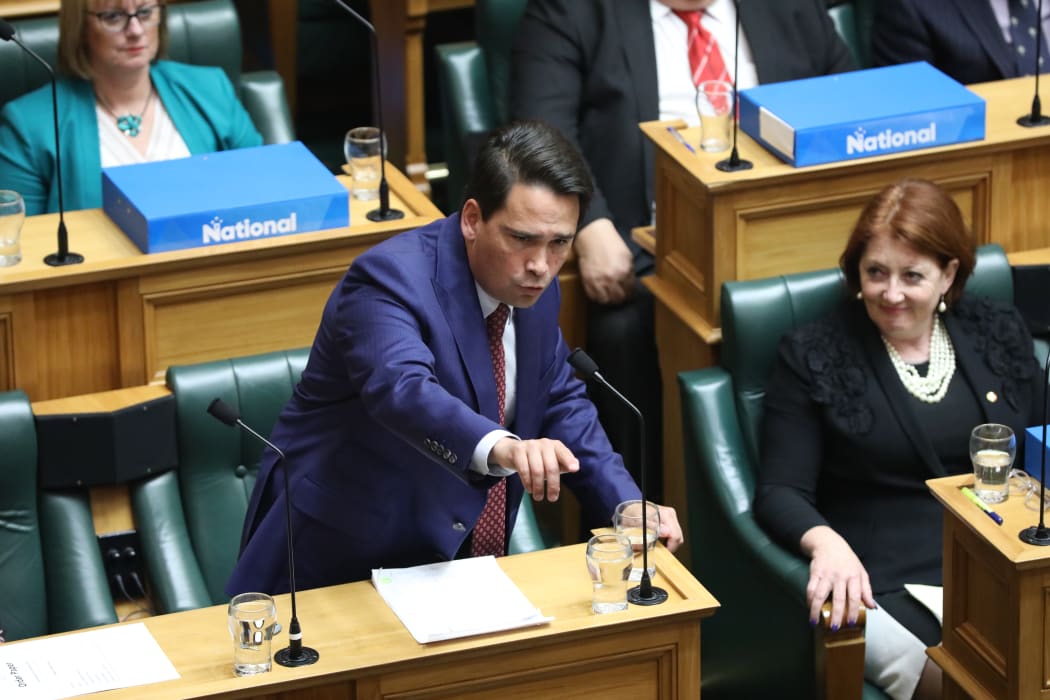Wednesdays are different at Parliament.
Yes, there’s the usual hour or so of Oral Questions - the daily inquisition. But after that the House launches into the General Debate, Parliament’s version of slam oratory (with the emphasis on slam). Then to really break the mold, on alternate Wednesdays all the bills debated are not from the Government. Usually they are member’s bills (written by back-benchers), but this week there are three local bills - introduced on behalf of a council.
Question Time 2pm
What:
-
Twelve Questions are posed to ministers with inquisitorial follow-ups (supplementary questions). Roughly two thirds of them are asked by the Opposition. It’s an hour of high drama, semantic-linguistic puzzles and debates over the rules. And shouting.

The Taupatupatu Whanui is usually pretty bellicose. Photo: VNP / Phil Smith
Taupatupatu Whānui - The General Debate 3pm(ish)
What:
-
Twelve speeches of up to five minutes in length. Bigger parties get more speeches.
Why:
-
The general debate is so MPs can bring up issues that specific debates on legislation don’t cover, making it a wide-ranging debate. Sometimes each party coordinates their talking points but they don’t have to. There’s fewer rules generally and it can be both raucous and entertaining.
Members’ Day 4pm(ish) - 10pm
On alternate Wednesdays, the bills debated are local, or private or member’s bills (by MPs who are not ministers). Members’ bills get a shorter first debate, so quite a few can get rattled through. Unlike government bills there’s often suspense as to whether these bills will survive or be voted down. Many of NZ’s most culturally significant changes have come from a member’s bill. Oh, and no-one ‘decides’ which members bills will get debated. They are selected from a ballot, and debated in order, most done first, newest last.
Local bills are created when local councils (via MPs) ask Parliament to allow rule changes that have very local effects (but which the council doesn’t have the power to enact). There are two local bills that will be polished off in a row today - pretty unusual.
Up this week:
Water for Tasman (the district not the sea)
What:
-
The Tasman District Council (Waimea Water Augmentation Scheme) Bill - committee stage and third reading.
-
Members days are also when Local Bills get discussed. They are bills requested by local councils and sponsored by an MP. They are often to deal with a very local issue or get around a law. This one changes the status of some Crown Land so that a water scheme can go ahead.
Waitara land rules
What:
-
The New Plymouth District Council (Waitara Lands) Bill under the sponsorship of Taranaki MP Jonathan Young - committee stage and third reading.
-
The bill describes itself like this: “This bill broadens the purposes for which net accumulated and future rental income and proceeds of sale of significant amounts of endowment land at Waitara can be applied.”
-
There are blocks of land around Waitara town in Taranaki that are owned by the council and have varying histories and obligations. Some are covered by specific endowments which determine how income from them can be used.
-
This bill transfers some lands to Atiawa, removes restrictions about income use, moves land to co-management between the council and an Atiawa trust, and will allow leaseholders to gain freehold titles.
More time for dealers
What:
-
The continuation of the committee stage for the Psychoactive Substances (Increasing Penalty for Supply and Distribution) Amendment Bill in the name of Simeon Brown.
-
The Bill increases the penalty for selling or supplying non approved psychoactive substances from two years to eight years. National and New Zealand First have been voting for this bill. Labour, ACT and the Greens opposed it after it’s second reading debate.
Let’s agree to agree
What:
- The second reading of the Arbitration Amendment Bill, in the name of National MP Andrew Bayly. It seeks to: reverse the current rebuttable presumption of open proceedings (in line with overseas practice); resolve uncertainty regarding whether an arbitration clause in a trust deed would be binding. Every party but New Zealand First agreed to its first reading.

